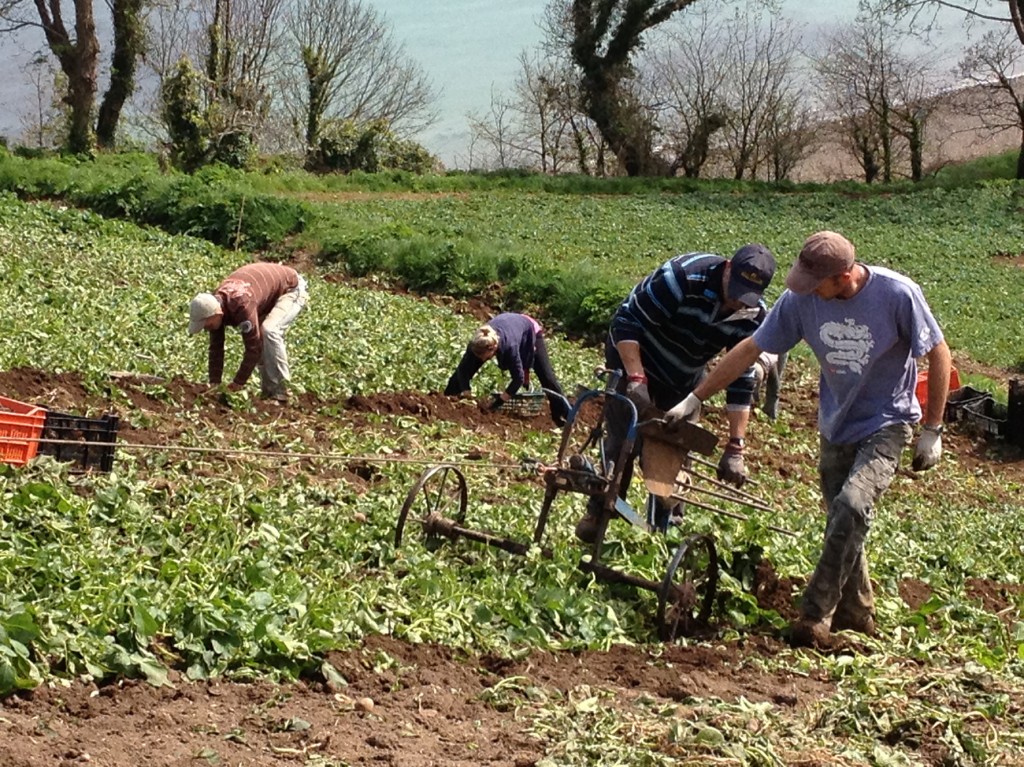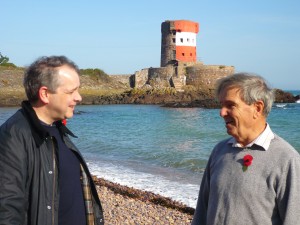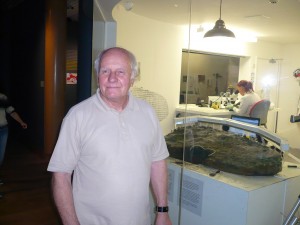
“Our Sussex history, heritage and culture are vital to the health and prosperity of our local community”
Our culture and heritage is vital because it provide us with a common narrative, a shared story. It gifts us with a sense of identity. It builds and makes strong and healthy communities.
Visiting my family in the Channel Islands I have been reminded how important my knowledge of Jersey history is to me. Limited as it is, it allows me to celebrate the island’s past and present and to belong.
Common narratives bind communities together. The story is on-going. It changes and evolves as people come and go. Jersey has long embraced migrant labour from across Britain, from Madeira and now from Poland especially in the finance industry and farming. Many of these peoples have returned home, many have stayed and made a life there.

My father-in-law, Frank Falle, is a passionate and well regarded Jersey historian. As we walk along a favourite beach in the October sunshine he reminds me that Jersey has often found herself under attack. The Vikings invaded and settled there under the leadership of Hasting. Some historians believe that he gave his name to the town of Hastings in Sussex. In the 18th century French invaders were defeated by Major Peirson whose death during the battle in the centre of St Helier was recorded in the oil painting by John Singleton Copley. The Jersey Round Towers, like the one at Archirondel, are forts which were designed to defend the island and are found around Jersey. In the Second World War the German’s invaded, occupied and fortified the Island.
For many years Frank has run courses on Jersey history and has built a community of historians. I ask him how many of them are from old Jersey families like his. He responds enthusiastically saying “Most of the people on my courses are people who have come to live in Jersey in recent times. They’re proud of Jersey’s history and the place where they have made their lives”. We go down to The Jersey Museum to see the ‘Jersey Hoard’ where we find Reg Mead who discovered this ancient hoard of coins with his colleague Richard Miles. Reg is a man gifted with humble enthusiasm. It is quickly apparent that he has a deep sense of service and responsibility to the Island he has called home since he moved to Jersey in 1976. “I came to the Island to teach having worked as a satellite systems electronics engineer” he explains. Reg is the past President of the Jersey Detecting Society. I ask Reg what drove him forward over all the years he has been a metal detecting enthusiast. He responds “It’s nothing to do with the money. This discovery represents thirty years of hard work often in the pouring rain! The coins were very deeply buried. We had to use a metal detector used to discover Hurricanes, Spitfires and deep finds” Reg’s skill with electronics and his love of history have been important to the success of this find. The reward for their dedication will be shared with the land owner, though the farmer’s name and the field are being kept a secret. But for now Reg is working with a team of archaeologists to preserve, identify and record the hoard using the latest three dimensional mapping technology. Reg explains “Once the hoard has been broken down into its component parts we will be able to show where each coin was located in the mass.” It is Europe’s largest discovered hoard of Celtic coins numbering some 70,000 examples.

Reg Mead and Richard Miles have written themselves into Jersey’s history and added to the richness of its future story. The work on the hoard is on full public view at the Jersey Museum. The Jersey Museum is funded by the Island’s government. The States of Jersey understand the importance of history, heritage and culture to the local community in terms of its identity and also the enormous, positive economic impact it has on their economy and employment.
Our Sussex history, heritage and culture are equally vital to the identity, health and prosperity of our local community. History, heritage and culture is a major contributor to our local economy and will continue to provide us all with a common narrative. Like me in Jersey it will allow those who move to West Sussex to belong and add to the richness of our evolving local identity. Our community and quality of life is something which should never be taken for granted. If we are to preserve our county’s distinctive identity and quality of life it is important that our local politicians continue to understand, value and support our museums and art galleries. It is work that only government can do and they are deserving of our thanks for their support and continuing investment.
By Revd. Rupert Toovey. Originally published on 12th November 2014 in the West Sussex Gazette.